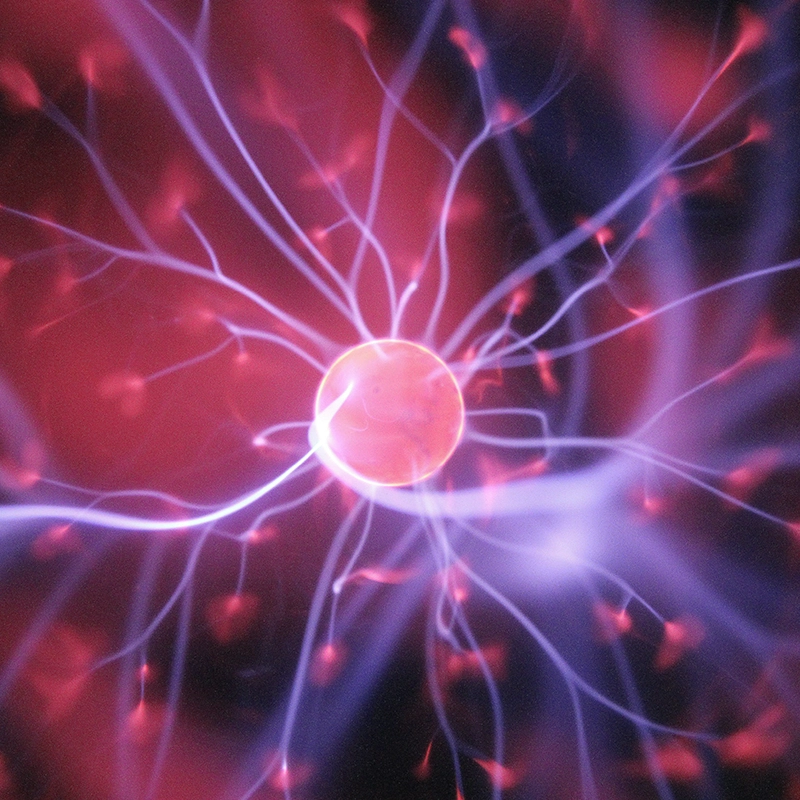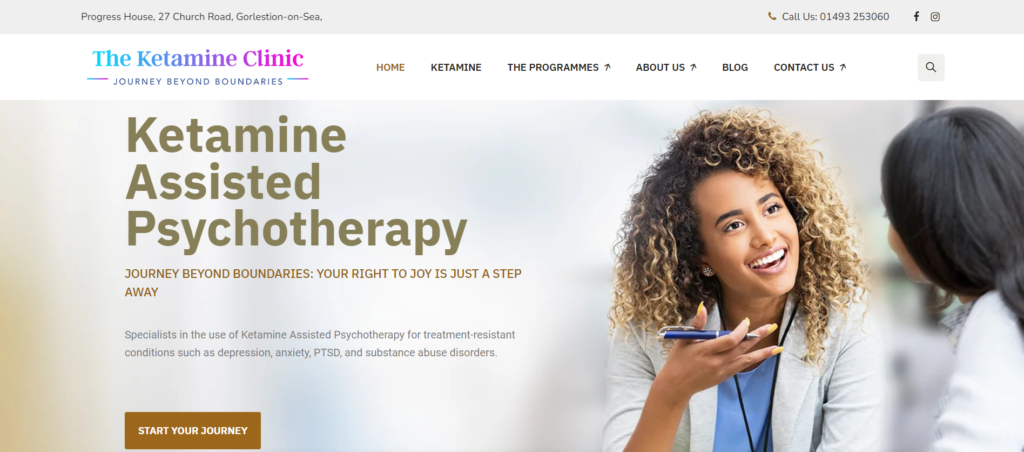Ketamine Assisted Psychotherapy
Ketamine Assisted Therapy helps with:
- Major Depressive Disorder
- Childhood Trauma
- Treatment Resistant Depression
- PTSD
- Addiction
- Eating Disorders
Journey Beyond Boundaries: Discover the Healing Power of Ketamine Assisted Psychotherapy

More Than Therapists
Creating the Change you Deserve
At Mind Success, we are more than just therapists; we are experienced and passionate advocates for Ketamine Assisted Psychotherapy (KAP). Our team comprises skilled medical professionals deeply committed to your safety and well-being. With a strong emphasis on medical supervision and personalized care, we ensure a secure and supportive environment for your therapeutic journey on the way to better and more positive mental well-being!
Paul Gibson
Proudly associated with The Ketamine Pschotherapy Association
What is Ketamine assisted Psychotherapy?

What
Ketamine-Assisted Psychotherapy (KAP) is an innovative approach that combines the use of ketamine, a legal and effective medicine, with psychotherapy to treat mental health conditions.

Effects
This method has gained attention for its rapid-acting antidepressant and mood-enhancing effects, which can begin within 1-2 hours after administration.

How
KAP works by blocking the brain's NMDA receptors and stimulating AMPA receptors. This action is believed to help form new synaptic connections and boost neural circuits that regulate stress and mood.

Proven
A study conducted by Jennifer Dore and others in 2018, which examined outcomes from three psychotherapy practices using KAP, found it to be an effective method for decreasing depression and anxiety, especially for patients with severe symptom burdens.
What we Offer:
Experienced Psychedelic Therapists
Our team's extensive experience in psychedelic therapy ensures a deep understanding of your journey.
Passionate Advocates
of KAP
We believe in the transformative power of KAP and are dedicated to its practice and advancement.
Commitment
to Safety
Your safety is our top priority. We adhere to stringent medical supervision protocols for a secure therapy experience.
Evidence-Based
Approach
Our methods are grounded in the latest research and proven strategies in psychedelic-assisted therapy.
Personalised
Care
We tailor each session to meet your unique needs, ensuring an empathetic and effective therapeutic experience.
Proven
Benefits
Clients report significant improvements in mental health conditions like depression, anxiety, and PTSD.
Our approach is rooted in extensive research and enriched by the positive transformations we’ve witnessed in our clients. By choosing us, you’re not just selecting a therapy option; you’re embracing a path towards profound healing and personal growth, guided by experts who genuinely care.
Is Ketamine Assisted Psychotherapy for me?
Are you experiencing:
Do you find yourself struggling to break free from substance dependency, despite trying various treatments?
Ketamine-Assisted Psychotherapy (KAP) can be a pivotal treatment for those battling addiction. KAP addresses both the physiological and psychological aspects of addiction. The unique properties of ketamine can disrupt entrenched neural pathways associated with addictive behavior, providing a “reset” for the brain. This, combined with psychotherapy, offers a comprehensive approach, allowing individuals to explore and address underlying emotional and psychological factors driving their addiction. KAP has shown promising results in reducing cravings and aiding in the development of healthier coping mechanisms, offering a new avenue of hope for long-term recovery.
Do you feel that past childhood trauma continues to impact your life, shaping your emotions and reactions in ways that feel beyond your control?
Ketamine-Assisted Psychotherapy (KAP) can be especially effective for individuals grappling with the long-term effects of childhood trauma. Traumatic experiences in early life can significantly impact brain development and function, leading to persistent emotional and psychological challenges. KAP facilitates a unique therapeutic process where ketamine’s neuroplastic effects can help ‘rebuild’ or rewire the trauma-affected brain. This process enables the brain to form new, healthier neural pathways, mitigating the entrenched patterns established by early trauma. During psychotherapy sessions, individuals can safely explore and process traumatic memories, fostering healing and resilience. KAP thus offers a two-pronged approach: ketamine aids in creating a more receptive state for change, while psychotherapy guides the emotional and cognitive processing essential for recovery from childhood trauma.
Do you struggle with an eating disorder that feels overwhelming, impacting your relationship with food and body image?
Ketamine-Assisted Psychotherapy (KAP) offers a novel approach to treating eating disorders, a condition often deeply rooted in psychological factors. Eating disorders are complex, involving emotional, cognitive, and behavioral components that are challenging to address. KAP’s effectiveness lies in its ability to facilitate a state of enhanced neuroplasticity, allowing the brain to form new pathways and perspectives. This state, supported by the empathetic guidance of psychotherapy, enables individuals to confront and reframe negative self-images and destructive eating behaviors. KAP can provide a breakthrough in understanding and altering the deep-seated beliefs and emotions associated with eating disorders. By fostering a more positive self-image and healthier coping strategies, KAP can be a powerful tool in the journey toward recovery and a healthier relationship with food and body.
Are you struggling with persistent feelings of sadness or hopelessness, especially if you have treatment-resistant depression or major depressive disorder?
Ketamine-Assisted Psychotherapy (KAP) is emerging as a highly effective treatment for those suffering from severe forms of depression, including treatment-resistant depression and major depressive disorder. Traditional treatments for these conditions, like antidepressants and psychotherapy, may not always provide relief, leaving individuals feeling despondent and, in some cases, leading to suicidality. KAP, however, offers a new hope. Ketamine’s rapid-acting antidepressant properties can lead to quick improvements in mood, often within hours or days of treatment, a significant advantage over conventional antidepressants that may take weeks to show effects. This rapid improvement is especially crucial for those experiencing suicidal thoughts, providing immediate relief in acute situations. In conjunction with psychotherapy, KAP aids in addressing underlying emotional and psychological issues, promoting long-term mental health and well-being. The combination of immediate symptom relief and deeper emotional healing makes KAP a promising option for those battling severe depression.
Do you find yourself haunted by past traumatic events, affecting your daily life and ability to move forward?
Ketamine-Assisted Psychotherapy (KAP) has shown considerable promise in treating Post-Traumatic Stress Disorder (PTSD) and Complex PTSD (C-PTSD). These conditions often arise from deeply distressing or disturbing experiences, leading to long-lasting effects that can be challenging to address with traditional therapies alone. KAP offers a unique approach in which ketamine’s potential to disrupt harmful memory reconsolidation can play a crucial role. This process allows individuals to revisit traumatic memories in a safe, controlled environment, reducing their emotional impact and facilitating healing. The psychotherapeutic component of KAP further supports this process, helping individuals to process these memories and develop healthier coping mechanisms. This dual approach not only targets the symptoms of PTSD and C-PTSD but also addresses their root causes, leading to more profound and lasting improvements in mental health and overall quality of life.
Are you constantly battling with overwhelming anxiety, panic attacks, or phobias that inhibit your ability to live fully?
Ketamine-Assisted Psychotherapy (KAP) offers an innovative treatment approach for various anxiety disorders, including generalized anxiety disorder, social anxiety disorder, and panic disorder. Anxiety disorders often stem from overactivity in certain areas of the brain, leading to excessive worry, fear, and panic. KAP can be particularly effective in these cases due to ketamine’s ability to modulate neurotransmitter activity.
Ketamine is known to increase the production of Gamma-Aminobutyric Acid (GABA) in the brain, a neurotransmitter that plays a key role in inducing calmness and reducing neuronal excitability. This increase in GABA can help alleviate the heightened state of anxiety, providing a sense of tranquility and allowing individuals to engage more effectively in psychotherapy.
During KAP sessions, as the brain becomes more receptive to change due to ketamine’s neuroplastic effects, psychotherapy can be more effective in addressing the underlying causes of anxiety. This treatment helps individuals develop healthier thought patterns and coping mechanisms. By combining the immediate calming effects of ketamine with the long-term benefits of psychotherapy, KAP provides a comprehensive approach to managing and overcoming anxiety disorders. This dual therapy offers not just symptomatic relief but also works towards fundamentally altering the brain’s response to anxiety triggers, leading to sustained improvements in mental health and well-being.
Find out more about Ketamine below:
KETAMINE HAS BEEN APPROVED FOR USE SINCE 1970
Learn more about the history, science, research and future of this revolutionary approach to wellness and mental health.
Science of Ketamine: An Overview
What is Ketamine?
Ketamine, initially synthesized in the 1960s, is a medication primarily used for starting and maintaining anesthesia. It’s known for its distinctive ability to induce a trance-like state while providing pain relief, sedation, and memory loss. Over time, its usage has expanded beyond anesthesia, notably into the field of mental health.
Ketamine’s Use as an Anesthetic
As an anesthetic, ketamine is unique in its ability to maintain protective reflexes, like breathing. It’s often used in emergency settings for its safety profile, particularly in patients with unstable hemodynamics, as it generally does not depress the cardiovascular system.
The Science of Ketamine and Improved Mental Health
The efficacy of ketamine in enhancing mental health is underpinned by its multifaceted interactions within the brain, impacting various neurotransmitter systems and biological processes. One of the lesser-known yet significant aspects of ketamine’s action is its anti-inflammatory effects, which contribute to its overall therapeutic impact.
Impact on Brain-Derived Neurotrophic Factor (BDNF)
1. BDNF and Neuroplasticity:
– Ketamine boosts levels of Brain-Derived Neurotrophic Factor (BDNF), a crucial protein for neuroplasticity. This increase in BDNF supports neuronal growth and synaptic development, essential for recovery from mental health disorders marked by neural degradation or synaptic deficits.
Modulation of Glutamate
1. Glutamate and Mood Regulation:
– By blocking NMDA receptors, ketamine triggers a glutamate surge, enhancing synaptic plasticity and mood regulation. This action on the glutamatergic system, which governs cognitive functions and mood, is a cornerstone of ketamine’s rapid antidepressant effects.
Interaction with Monoamines
1. Influence on Monoamine Neurotransmitters:
– Ketamine indirectly affects monoamines like serotonin, dopamine, and norepinephrine, key neurotransmitters in mood and emotional regulation. These downstream effects on monoamine pathways contribute to the mood-stabilizing and cognitive benefits of ketamine.
Anti-inflammatory Effects
1. Reduction of Inflammation:
– Recent research suggests that ketamine has anti-inflammatory properties, which play a role in its effectiveness for mental health treatment. Chronic inflammation has been linked to the development of various psychiatric disorders, including depression and anxiety.
– Ketamine’s ability to reduce inflammation in the brain could therefore be a key mechanism in alleviating symptoms of these disorders. The reduction of inflammation may help to normalize brain function and alleviate the stress response often heightened in psychiatric conditions.
Comprehensive Effects
1. Synergistic Actions for Mental Health:
– The therapeutic benefits of ketamine arise from its combined actions on BDNF, glutamate, monoamines, and its anti-inflammatory effects. This synergistic impact makes ketamine a unique and potent agent in psychiatric care.
– Beyond providing symptomatic relief, ketamine’s enhancement of neuroplasticity and reduction of inflammation might contribute to long-term improvements in brain health and function.
Effects at Low vs. High Doses
At low doses, ketamine can cause a mild dissociative state, often described as an out-of-body experience. This effect has been utilized in mental health treatments, where it helps patients detach from immediate emotional experiences, providing a unique therapeutic perspective.
At higher doses, used primarily in anesthesia, ketamine can induce a full dissociative state, where patients become completely unresponsive to external stimuli. This level of dosage is accompanied by more profound sedation and analgesia, making it suitable for surgical procedures.
The low-dose application in mental health is distinct from these high-dose effects, focusing on ketamine’s rapid-acting antidepressant and mood-modulating properties.
In conclusion, ketamine’s role in mental health extends beyond its immediate psychiatric effects, encompassing anti-inflammatory actions that may be pivotal in treating various mental health disorders. By targeting multiple aspects of brain function and health, ketamine presents a holistic approach to psychiatric treatment, offering hope for rapid and enduring relief from mental health conditions.
Understanding the science of ketamine is crucial in recognizing its potential and limitations in both anesthesia and mental health treatment. As research progresses, the role of ketamine in medicine continues to evolve, especially in the field of psychiatry, where it’s reshaping treatment paradigms.
Research on Ketamine for Mental Health
Ketamine’s potential in treating various mental health conditions has been a significant focus of contemporary research. This research spans several conditions, including depression, anxiety, PTSD, and other mood disorders.
Ketamine Assisted Psychotherapy (KAP) is an emerging field with promising results in treating various mental health conditions. Here are eight significant studies that highlight the scope and effectiveness of KAP:
Ketamine Assisted Psychotherapy: A Systematic Narrative Review of the Literature
- Authors: Sandra J Drozdz, Akash Goel, Matthew W McGarr, et al.
- Published: 2022
- Abstract: This review summarizes evidence on KAP, showing significant reductions in pain, anxiety, and depressive symptoms. It emphasizes the importance of psychotherapy in conjunction with ketamine to maximize and prolong benefits.
Ketamine Assisted Psychotherapy (KAP): Patient Demographics, Clinical Data and Outcomes in Three Large Practices Administering Ketamine with Psychotherapy
- Authors: J. Dore, Brent Turnipseed, S. Dwyer, et al.
- Published: 2019
- Abstract: This study presents data from 235 patients, suggesting KAP’s effectiveness in decreasing depression and anxiety, especially in older patients and those with severe symptoms.
Ketamine-Assisted Psychodynamic Psychotherapy
- Author: John G Cottone
- Published: 2023
- Abstract: This case report details the treatment of a patient with multiple traumas, highlighting the importance of achieving a psychedelic trance state for successful KAP treatment.
Ketamine-assisted psychotherapy treatment of chronic pain and comorbid depression: a pilot study of two approaches
- Authors: D. Batievsky, M. Weiner, Shari B. Kaplan, et al.
- Published: 2023
- Abstract: This study explores the efficacy of KAP for chronic pain and major depressive disorder, suggesting its effectiveness in treating these comorbid conditions.
Active mechanisms of ketamine-assisted psychotherapy: A systematic review
- Authors: Isak Joneborg, Yena Lee, Joshua D. Di Vincenzo, et al.
- Published: 2022
- Abstract: This review evaluates the efficacy of KAP in treating treatment-resistant depression and substance use disorders, highlighting the role of ketamine’s neural changes and psychotherapy in treatment outcomes.
A Cohort-Based Case Report: The Impact of Ketamine-Assisted Therapy Embedded in a Community of Practice Framework for Healthcare Providers With PTSD and Depression
- Authors: S. Dames, P. Kryskow, C. Watler
- Published: 2022
- Abstract: This study evaluates a ketamine-assisted psychotherapy program for healthcare providers with PTSD and depression, showing significant improvements in mental health outcomes.
Ketamine-Assisted Psychotherapy for PTSD Related to Racial Discrimination
- Authors: Mailae Halstead, S. Reed, R. Krause, Monnica T. Williams
- Published: 2021
- Abstract: This case study demonstrates the effective use of ketamine as an adjunct to psychotherapy in treating treatment-resistant PTSD resulting from experiences of racism and childhood sexual abuse.
Ketamine-assisted psychotherapy in adolescents with multiple psychiatric diagnoses
- Authors: Philip E. Wolfson, Julane Andries, Daniel Ahlers, Melissa Whippo
- Published: 2023
- Abstract: This is the first published case of the use of KAP in adolescents with various psychiatric diagnoses, showing symptomatic and functional improvements.
These studies collectively illustrate the diverse applications and potential of KAP in treating a range of mental health disorders, including depression, anxiety, PTSD, and chronic pain. The research underscores the importance of integrating psychotherapy with ketamine treatment to achieve the best outcomes.
The History of Ketamine: From Anesthetic to KAP
Creation and Early Medical Use
Ketamine was first synthesized in 1962 by chemist Calvin Stevens at Parke-Davis. It was developed as part of a search for a safer alternative to the anesthetic phencyclidine (PCP), which was known for its severe side effects. Ketamine, with its unique anesthetic properties and safer profile, was approved for use in humans in the early 1970s, following its initial trials in 1964. It quickly gained prominence as an anesthetic due to its ability to induce a trance-like state while providing pain relief and memory loss, without significantly depressing respiratory or cardiovascular functions.
Use in Veterinary Medicine and on the Battlefield
Initially, ketamine was widely used in veterinary medicine due to its safety and effectiveness. Its rapid onset and minimal impact on respiratory and cardiovascular functions made it ideal for animal surgery. Additionally, its use extended to the battlefield during the Vietnam War. It was highly valued as a field anesthetic for its ability to induce anesthesia without depressing vital functions, crucial in emergency and combat settings.
Discovery of Antidepressant Properties
The psychiatric potential of ketamine began to unfold in the late 1990s and early 2000s. Researchers discovered that ketamine had rapid-acting antidepressant effects, particularly in cases of treatment-resistant depression. This discovery marked a significant shift in the perception of ketamine from an anesthetic to a potential psychiatric medication. A notable study in 2000 by Berman et al. showed rapid alleviation of depressive symptoms following ketamine administration, a groundbreaking finding given the limitations of existing antidepressants.
Ketamine in Psychotherapy (KAP)
Building on these findings, the use of ketamine expanded beyond anesthetic and analgesic applications into the field of psychotherapy. The development of Ketamine-Assisted Psychotherapy (KAP) emerged as an innovative approach, combining the pharmacological effects of ketamine with psychotherapy sessions. KAP has been particularly effective in treating a range of mental health conditions, including depression, anxiety, PTSD, and certain chronic pain conditions. The combination of ketamine’s rapid-acting antidepressant properties and psychotherapy offers a holistic approach, enabling patients to achieve profound therapeutic breakthroughs.
Today, KAP is increasingly recognized in the medical community for its effectiveness, especially in cases where traditional therapies have had limited success. Its ability to provide rapid symptom relief, coupled with its potential to facilitate deeper psychological processing, positions KAP as a significant advancement in the field of mental health treatment. The journey of ketamine, from its origins as an anesthetic to its current role in psychotherapy, highlights its versatility and the evolving understanding of its therapeutic potential.
Ketamine in Psychiatry and Mental Health
Pioneering Psychiatric Research
Exploring Antidepressant Effects
The exploration of ketamine in psychiatry began in the late 1990s and early 2000s, with researchers investigating its rapid-acting antidepressant effects. Early studies demonstrated that even a single low dose of ketamine could produce rapid and significant reductions in depressive symptoms, a groundbreaking finding considering the limitations of existing antidepressants.
Key Studies and Paradigm Shift
A seminal study published in 2000 by Berman et al. marked a turning point, showing that ketamine could rapidly alleviate symptoms of depression within hours of administration. This study, along with subsequent research, shifted the perception of ketamine from solely an anesthetic to a potential revolutionary psychiatric treatment. These findings ignited interest in the psychiatric community and led to further investigations into ketamine’s mechanisms of action and potential therapeutic applications.
Expansion into Mental Health Treatment
Supporting Research in Diverse Conditions
The body of research supporting ketamine’s use in mental health has grown significantly. Studies have not only confirmed its efficacy in treating major depressive disorder, particularly treatment-resistant depression, but have also explored its use in anxiety disorders, PTSD, and other mood disorders. Research has shown that ketamine can disrupt the negative thought patterns associated with these conditions, providing relief where traditional therapies had limited success.
Development and Adoption of KAP
Alongside these developments in research, there has been an evolution in the application of ketamine in therapeutic settings. Ketamine-Assisted Psychotherapy (KAP) emerged as a novel approach, combining the pharmacological effects of ketamine with psychotherapy. This integrated approach has shown to enhance the therapeutic outcomes, allowing patients to explore and address psychological issues more deeply and effectively. The increasing adoption of KAP in mental health settings is a testament to its growing acceptance and recognition as a valuable tool in mental health treatment.
The integration of ketamine into psychiatric practice marks a significant evolution in the field of mental health treatment. Its rapid antidepressant effects, coupled with its potential to offer new perspectives and insights during psychotherapy, make it a unique and valuable option in the treatment of various mental health disorders. As research continues and clinical experience grows, ketamine’s role in psychiatry is likely to expand further, offering new hope to those with challenging
mental health conditions.
The journey of ketamine into the realm of mental health treatment highlights a broader trend in psychiatry of exploring novel and unconventional treatments. The promising results seen in ketamine research and therapy have opened doors for more innovative approaches to mental health care, challenging traditional views and offering new avenues for those who have not found relief with standard treatments. This transition from anesthetic to a key player in mental health care underlines the dynamic nature of medical research and the ongoing quest for more effective and rapid treatment modalities for psychiatric conditions.
Your Journey
OUR KAP TREAMENT PROCESS
Every Journey is Unique
In this personalized and comprehensive process, each step is crafted to provide you with a secure, insightful, and transformative healing journey, tailored to meet your unique mental health needs.
Choose a program which suits you needs
EMERGE Program

A Specialized KAP Program for
Complex Cases
Emerge is a carefully structured Ketamine-Assisted Psychotherapy (KAP) program designed for individuals who have not found relief through traditional therapy and medications. The treatment in this program is over 4 weeks.
Tailored for treatment-resistant conditions:
- Depression
- PTSD
- Childhood Trauma
- Anxiety
- Eating Disorders
£2,500
This is the most competitive price in the UK and we will always aim to be the most competitive whilst maintaining the highest safety and efficacy possible.
Emerge is tailored for individuals who have exhausted conventional treatment routes without achieving the desired outcomes. It’s an opportunity for those who need an alternative approach to address their deep-rooted psychological issues and to emerge with renewed hope and clarity.
Medical Intake and Assessment
The journey begins with a detailed medical intake process. This initial step is vital for understanding your unique health history, current medications, and specific mental health challenges. The goal is to establish a safe and effective treatment plan, personalized to meet the needs of each individual. A full psychotherapy intake is also included to help us understand you.
Series of Ketamine Sessions
Emerge includes four carefully administered ketamine sessions. These sessions are designed to provide symptomatic relief and facilitate a deeper therapeutic process. Administered in a controlled setting, the ketamine sessions aim to catalyze psychological breakthroughs, offering new perspectives and insights into your mental health challenges.
Psychotherapy and Integration
Complementing the ketamine treatments are four psychotherapy and integration sessions. These sessions are key to the Emerge program, helping you process and make sense of their experiences during the ketamine sessions. The therapy sessions focus on integrating these insights into daily life, ensuring long-term benefits and sustainable mental health improvements. Please note: Psychotherapy/Integration sessions are commonly held in the Norwich office or online via Zoom.
Supportive and Nurturing Environment
Emerge is conducted in a supportive environment that encourages healing and growth. The program is facilitated by experienced professionals who provide a safe space for exploration and transformation. This nurturing setting is essential for you to feel comfortable and supported throughout their journey.
The primary goal of Emerge is to offer a new pathway to healing for those who have felt stuck in their therapeutic journey. By combining the unique properties of ketamine with comprehensive psychotherapy, Emerge aims to provide lasting relief and a deeper understanding of personal mental health challenges, fostering resilience and empowerment.
The program is structured for 4 KAP sessions as this is what a majority of people need to have a major change/shift in their outlook on life. However, many people wish to carry on the progress and purchase extra sessions to top-up or maintain the positive state. If these sessions occur within 6 months of the previous session then you will be asked to fill in a medical questionnaire to check your medical and psychological circumstances haven’t changed. If over 6 months then you will need to have a medical consultation to ensure ketamine is still right for you.
Additional KAP sessions with seperate Integration session= £450
Courses of four if booked and paid together get a 10% discount.
KLEAN Program

A Specialized KAP Program for
Substance Addiction Recovery
KLEAN is an intensive Ketamine-Assisted Psychotherapy (KAP) program, tailored for individuals battling substance addictions. This program combines eight ketamine sessions with four psychotherapy sessions over four weeks.
Tailored for treatment-resistant conditions:
- Behavioural Addiction
- Cocaine
- Alcohol
- Heroin
- Substance Recovery
£4,500
This is the most competitive price in the UK and we will always aim to be the most competitive whilst maintaining the highest safety and efficacy possible.
The Klean program is designed for treating addictions such as cocaine, alcohol, and heroin, KLEAN is a focused approach to recovery.
If you are trying to get clean from a substance or behaviour then KLEAN can help. KLEAN helps repair the damage that addictions do to life, brain and self. Addiction doesn’t care if it destroys everything that is good in your life. We do.
The KLEAN Program is a specialized Ketamine-Assisted Psychotherapy (KAP) regimen designed to aid in recovery from behavioral and substance addiction. This comprehensive program is structured to deliver targeted treatment over four weeks, comprising a total of 12 sessions that blend KAP with dedicated integration sessions.
Week-by-Week Breakdown:
Week 1:
- KAP Sessions: The program initiates with two KAP sessions. These sessions involve the administration of a controlled dose of ketamine, followed by psychotherapy. The aim is to begin addressing the root causes of addiction and start the process of neural pathway alteration.
- Integration Session: The week concludes with an integration session. This session is crucial for reflecting on experiences during the KAP sessions and beginning the process of integrating these insights into daily life.
Week 2:
- KAP Sessions: Two additional KAP sessions are conducted. These sessions build upon the initial work, delving deeper into the psychotherapeutic process and further enhancing neuroplasticity.
- Integration Session: The week’s integration session focuses on reinforcing new coping strategies and addressing any emerging challenges.
Week 3:
- KAP Sessions: This week includes two more KAP sessions, continuing the journey of self-discovery and healing. The cumulative effect of the ketamine treatments is expected to be taking a more pronounced effect by this stage.
- Integration Session: The integration session at the end of the week aims to solidify the progress made and prepare for the final week of the program.
Week 4:
- Final KAP Sessions: The last two KAP sessions are designed to consolidate the gains from the previous weeks and finalize the therapeutic course.
- Final Integration Session: The concluding integration session is a critical component of the program. It serves to review the entire treatment journey, establish a plan for maintaining progress post-treatment, and ensure a supportive transition back to daily life.
Please note: Psychotherapy/Integration sessions are commonly held in the Norwich office or online via Zoom.
The KLEAN Program is structured to provide an immersive and transformative experience. The goal is to disrupt the cycle of addiction, foster a new understanding of personal triggers and behaviors, and instill lasting change. By the end of the four weeks, participants are expected to have gained significant insights and developed effective strategies for ongoing recovery and well-being.
Support and Monitoring:
Throughout the program, participants are closely monitored and supported by experienced professionals. This ensures not only the safety and efficacy of the treatment but also provides a foundation of support and understanding crucial for recovery from addiction.
In summary, the KLEAN Program offers a structured, intensive approach to addiction recovery, combining the unique therapeutic benefits of ketamine with comprehensive psychotherapy and integration support. This program represents a progressive step in addiction treatment, offering new hope and a path towards lasting recovery.
The program is structured for 8 KAP sessions as this is what a majority of people need to have a major change/shift in their addiction. However, many people wish to carry on the treatment and purchase extra sessions to top-up or maintain the positive state. If these sessions occur within 6 months of the previous session then you will be asked to fill in a medical questionnaire to check your medical and psychological circumstances haven’t changed. If over 6 months then you will need to have a medical consultation to ensure ketamine is still right for you.
Additional KAP session with seperate Integration session= £450
Courses of four if booked and paid together get a 10% discount.
Come and visit us at our Specialist website: The Ketamine Clinic

Request Your Free Consultation
Embarking on a journey to better mental health is a significant and commendable decision. We're here to support and guide you through every step of the way. To get started, simply reach out to us for a chat.
Open Hours
Address
Pay your way
To ensure ease and flexibility in managing your treatment expenses, we offer various payment options. Our aim is to provide a smooth, secure, and convenient payment process, tailored to your preferences and financial needs.
Security and Privacy
Your financial security and privacy are paramount. We use state-of-the-art security measures to protect your payment information. Rest assured, your data is handled with the utmost care and confidentiality.
Your Questions, Answered
KAP combines the use of ketamine, a medication known for its rapid-acting antidepressant effects, with psychotherapy. It’s designed to facilitate deeper therapeutic experiences and accelerate psychological healing in treating various mental health conditions.
KAP can benefit individuals suffering from treatment-resistant depression, PTSD, severe anxiety, and certain chronic pain conditions. It’s especially helpful for those who haven’t responded to traditional treatment methods.
Ketamine has been used as an anesthetic in medical settings since the 1960s. Its use in psychotherapy, particularly for treating mental health disorders, has gained prominence in the last couple of decades.
Yes, KAP is increasingly being recognized by medical professionals, especially for its rapid and effective treatment of certain mental health conditions. However, it’s generally used as an off-label treatment.
KAP is primarily used to treat conditions like major depressive disorder, especially treatment-resistant depression, PTSD, severe anxiety disorders, and certain chronic pain syndromes.
KAP utilizes the psychoactive properties of ketamine to enhance the psychotherapeutic process, often leading to faster and more profound therapeutic breakthroughs compared to traditional psychotherapy alone.
KAP can sometimes be used in conjunction with other medications, but this requires careful medical supervision. The compatibility of KAP with other medications depends on the individual case and should be evaluated by a healthcare professional.
A typical KAP session involves administering a controlled dose of ketamine, followed by or coinciding with psychotherapy. The exact structure can vary based on the treatment protocol and individual patient needs.
Ketamine is recognized as a safe treatment option, particularly when administered under medical supervision. Its established safety profile is underscored by its use in various medical settings, including neonatal care. In therapeutic use, ketamine is administered in much lower doses than in anesthesia, significantly reducing the risk of side effects. These side effects, generally mild and transient, are well-managed under the careful monitoring of healthcare professionals.
The risks associated with therapeutic doses of ketamine are comparable to those of common over-the-counter medications like paracetamol, especially when preceded by a thorough medical assessment. This comparison highlights its safety when used responsibly in a medical setting. Professional administration and close patient monitoring during treatment further reinforce the safety and efficacy of ketamine as a therapeutic tool.
At our clinic, we firmly believe that access to transformative mental health care like Ketamine Assisted Psychotherapy (KAP) should be a right, not a privilege. Our mission is rooted in the desire to bring healing and hope to those who need it most, regardless of their financial situation. We understand that mental health challenges, such as depression and anxiety, do not discriminate based on one’s economic status. Therefore, it’s essential for us to ensure that our services are as inclusive and accessible as possible.
Our ability to offer KAP at more affordable rates is also a reflection of our broader commitment to mental wellness. We are fortunate to have a diverse range of specialties within our practice, which allows us to support our KAP services without relying solely on them for our clinic’s sustainability. This unique position enables us to focus on what truly matters – providing compassionate, effective care to our patients.
We also recognize that KAP, while a groundbreaking therapy, is still relatively new in the UK. We believe that pioneering treatments should be shared for their therapeutic value, not priced for their novelty. Mental health care is a journey that should be embarked upon with support and understanding, not financial burden.
In essence, our approach is not about monetary gain; it’s about making a real difference in the lives of those who are struggling. We want to be part of a positive change in mental health care, where the focus is on healing and accessibility, not exclusivity. Everyone deserves the chance to find relief and hope, and we are here to provide that opportunity.


 Application, Intake, and Medical Assessment
Application, Intake, and Medical Assessment Preparation
Preparation Ketamine-Assisted Psychotherapy Session
Ketamine-Assisted Psychotherapy Session Integration
Integration